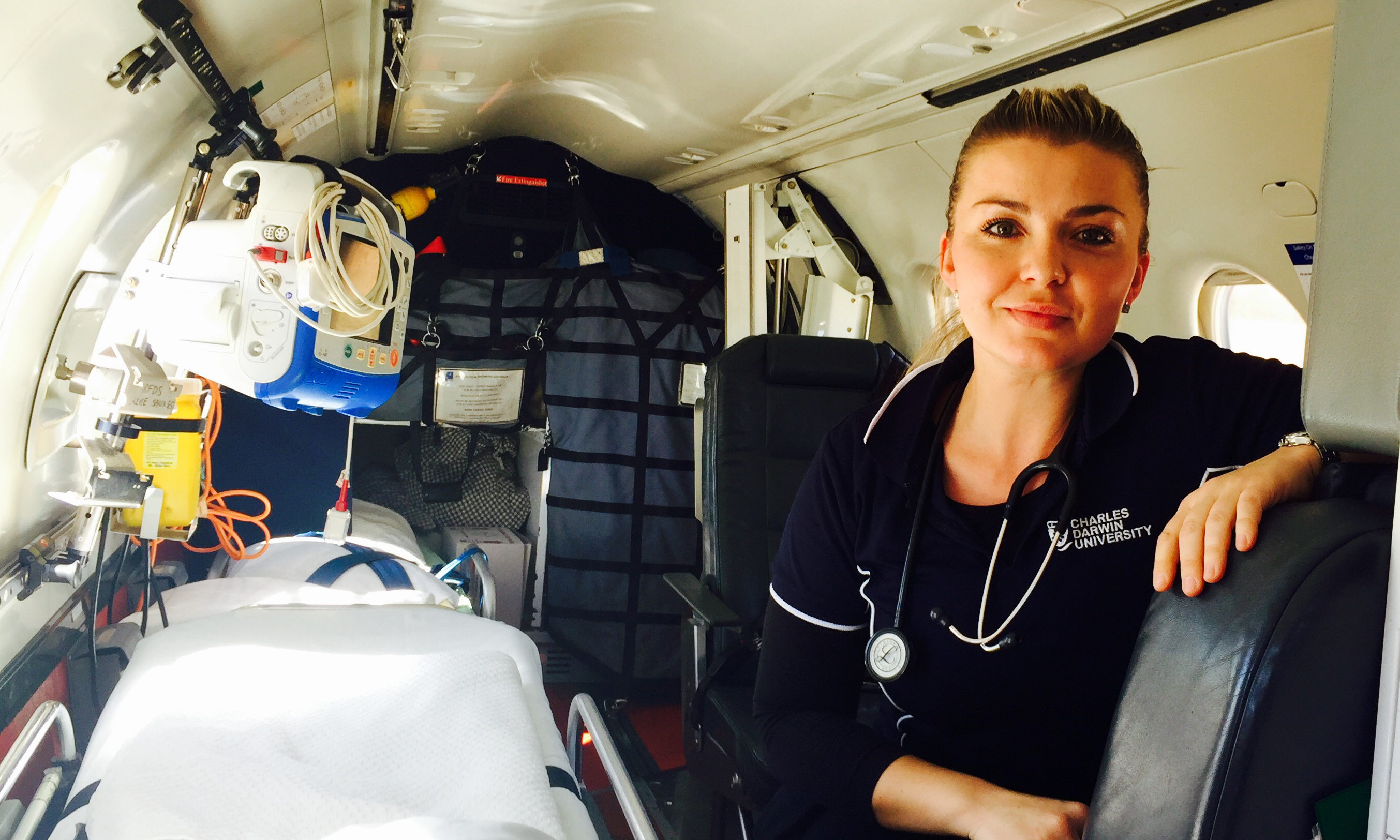This site may not work properly using older versions of Edge and Internet Explorer. You should upgrade your browser to the latest Chrome, Firefox, Edge, Safari, or any other modern browser of your choice. Click here for more information.
Your Stories
This is where we tell your stories, cover topical issues and promote meaningful initiatives.
Multiple positive experiences in Indigenous Health
Indigenous health has always been a passion for Katarina Samotna, a 3rd Year Bachelor of Nursing student at Charles Darwin University. And her recent placement in the remote Indigenous communities of Haasts Bluff and Titjikala in the Northern Territory and at Alice Springs Hospital (ASH) has cemented her commitment.
This four-month placement entirely exceeded my expectations.
The remote area nurses at Haasts Bluff and Titjikala, who provide primary health care and primary clinical care for approximately 200 community members, are highly educated and experienced nurses with outstanding clinical skills. During my placement, I felt very supported and comfortable, and gained a lot of understanding and knowledge from these nurses.
I learned and practiced a variety of skills, such as health assessments, running patient consultations, prescribing and dispensing medication, administering vaccinations, suturing, organising medical evacuations and retrievals, performing child health assessments and antenatal examinations, and chronic disease management. All these experiences and the professional benefits of working in remote areas, such as greater autonomy and responsibility, sparked my desire to become a Remote Area Nurse.
I gained multiple positive experiences from this placement, which have influenced my practice. For example, I developed excellent cross-cultural communication skills when dealing with Indigenous clients. This is a valuable asset to my future practice as I am planning to work in remote Indigenous communities after my graduation.
My skills in assessing the patients’ health have also significantly improved, as I developed confidence in respiratory assessment, auscultation, and eye and ear examination. I had several opportunities to run patient consultations, becoming more systematic when obtaining patients’ medical history and recording it in the progress notes. Also, I learned how to assess the patients’ symptoms effectively and identify their diagnosis, including the most suitable medication required. Hence my knowledge of pharmacology significantly improved.
At ASH, I worked closely with Aboriginal health practitioners to develop cultural competence when dealing with Indigenous clients. I joined the Alcohol and Other Drugs team, experienced retrieval medicine with the Royal Flying Doctor Service, and participated in health promotion and education programs for Indigenous youth in remote communities. For example, in Haasts Bluff, the initial interest in the community services is to take Aboriginal children and youth for a trip into a bush, and so prevent them from boredom. Also, this activity might increase their desire to be physically active, which might prevent them from developing chronic conditions, such as obesity, hypertension, and diabetes. Furthermore, spending all day outside, in the bush, emphasises Aboriginal culture and their spiritual connection with the land and nature.
I also realised that engagement with the community is the most efficient strategy dealing with isolation, when working in very remote settings. I am now confident that these experiences have provided me with the knowledge and skills required to work with Indigenous people in remote and rural settings as a well-rounded and qualified Registered Nurse.
I would like to sincerely thank CRANAplus for supporting me with the costs of undertaking this wonderful clinical placement experience.
